28 Nov 2023
Updated on December 1st, 2023
White-Label Telemedicine Apps: Navigating the Future to Streamline Medical Practices
Nida Akbar
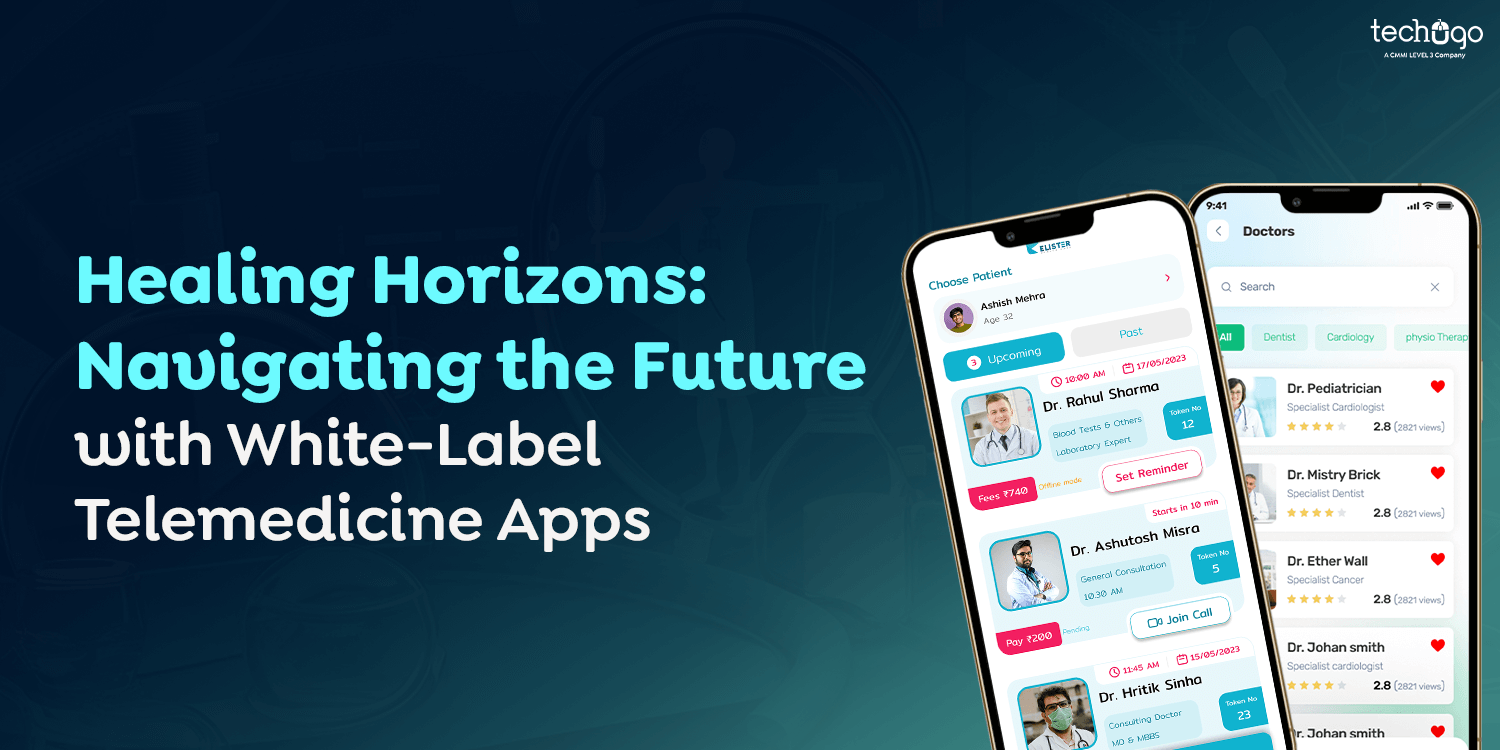
In the dynamic realm of technology, the development of healthcare apps stands out as a pioneering venture with the potential to revolutionize how people perceive and manage their health. As the demand for innovative solutions in healthcare continues to rise, investing in while-label telemedicine apps becomes a strategic move for a healthcare app development company aiming to make a lasting impact.
This blog explores why app development companies should channel their resources into crafting healthcare applications, emphasizing the transformative effects these apps can have on human lives.
Now, let’s delve deeper into the world of a white-label telemedicine app.
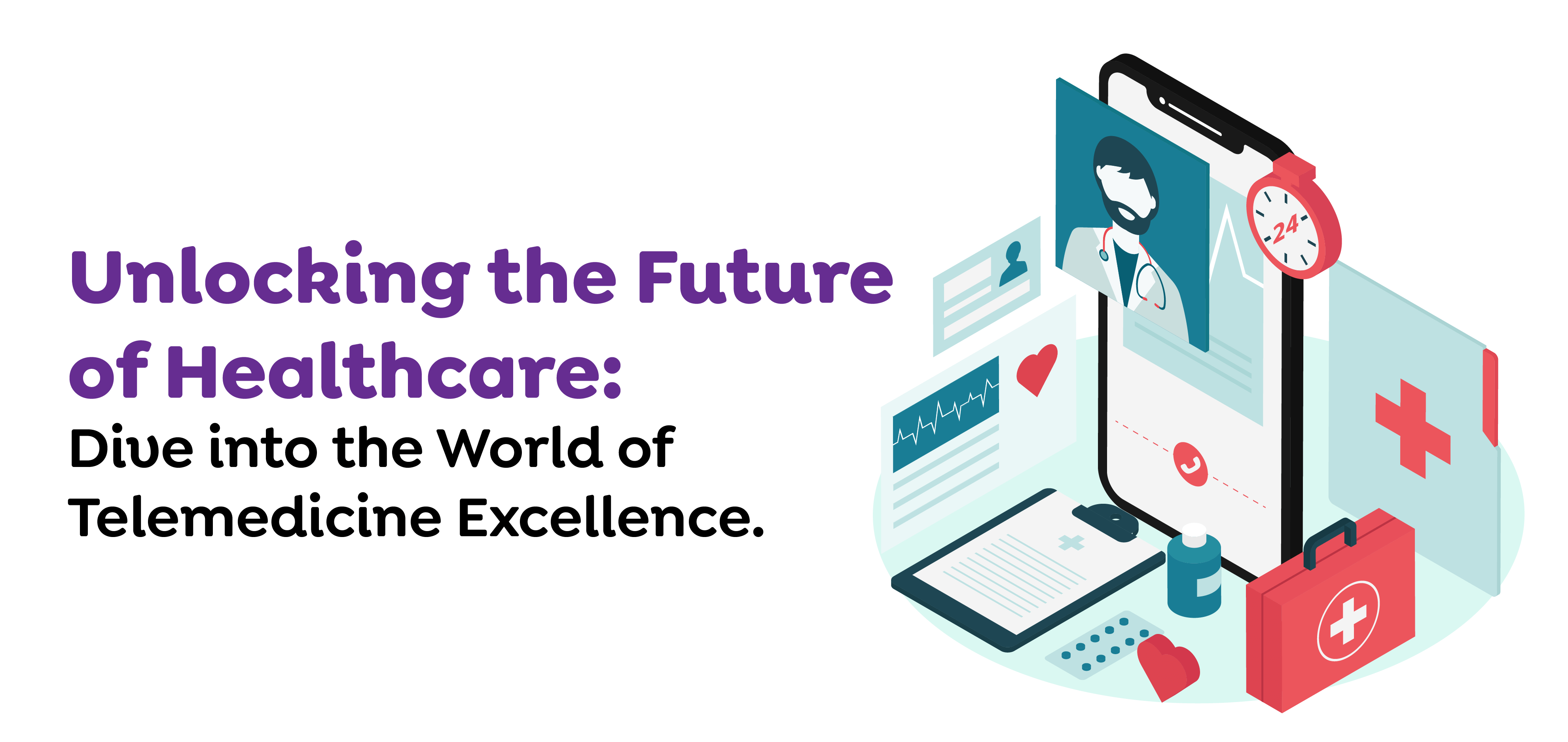
Transforming Lives: How Telemedicine Apps Make Life Easier for Older
1. Virtual Consultations for Immediate Care: Telemedicine enables prompt virtual consultations, providing immediate access to healthcare professionals and addressing concerns in real time for older adults.
2. Reduced Dependence on Caregivers: It empowers older adults to manage routine healthcare independently, reducing their reliance on caregivers for every medical outing.
3. Convenience in Medication Management: Telemedicine apps streamline medication management by offering digital prescriptions, medication reminders, and accessible communication with healthcare providers.
4. Management of Chronic Conditions: A white-label telemedicine app supports effective management of chronic conditions through regular virtual check-ins, remote monitoring, and virtual follow-ups.
5. Mental Health Support: Telemedicine extends mental health support to older adults through virtual therapy sessions and counselling, promoting overall well-being.
6. Health Education and Resources: Telemedicine apps serve as platforms for health education, providing reliable information and resources for older adults to manage their health effectively.
7. Empowering Aging in Place: Telemedicine empowers older adults to age in place by facilitating healthcare access from home, preserving comfort and familiarity.
8. Family Involvement and Remote Caregiving: Telemedicine bridges geographical gaps, allowing family members and remote caregivers to participate in healthcare discussions and stay updated on health status.
9. Promoting a Sense of Security: Incorporating telemedicine into healthcare routines provides a sense of security for older adults, knowing that medical advice is readily available through virtual consultations.
HIPAA-Compliant Healthcare App: Ensuring Data Security and Patient Privacy
1. Introduction to HIPAA Compliance:
Understanding the importance of adhering to the Health Insurance Portability and Accountability Act (HIPAA) regulations in healthcare app development is essential.
2. Secure Patient Data Management:
We are implementing robust encryption and access controls to ensure the confidentiality and integrity of patient health information with HIPAA compliant healthcare apps.
3. User Authentication and Authorization:
Employing advanced authentication measures to verify user identity and control access to sensitive healthcare data.
4. Audit Trails for Accountability:
Incorporating audit trail features to track and monitor access to patient records, ensuring accountability and compliance.
5. Secure Communication Channels:
We use encrypted communication channels to safeguard the exchange of sensitive medical information between healthcare providers and patients.
6. Role-Based Access Control (RBAC):
We are implementing RBAC systems to restrict access based on the roles and responsibilities of different users within the healthcare app.
7. Regular Security Audits:
They conducted routine security audits to identify and address potential vulnerabilities, ensuring continuous compliance with HIPAA standards.
8. Training and Education:
We provide comprehensive training for healthcare professionals and app users to ensure awareness and adherence to HIPAA guidelines.
9. Incident Response Planning:
We are developing and implementing a robust incident response plan to promptly address and mitigate any potential security breaches.
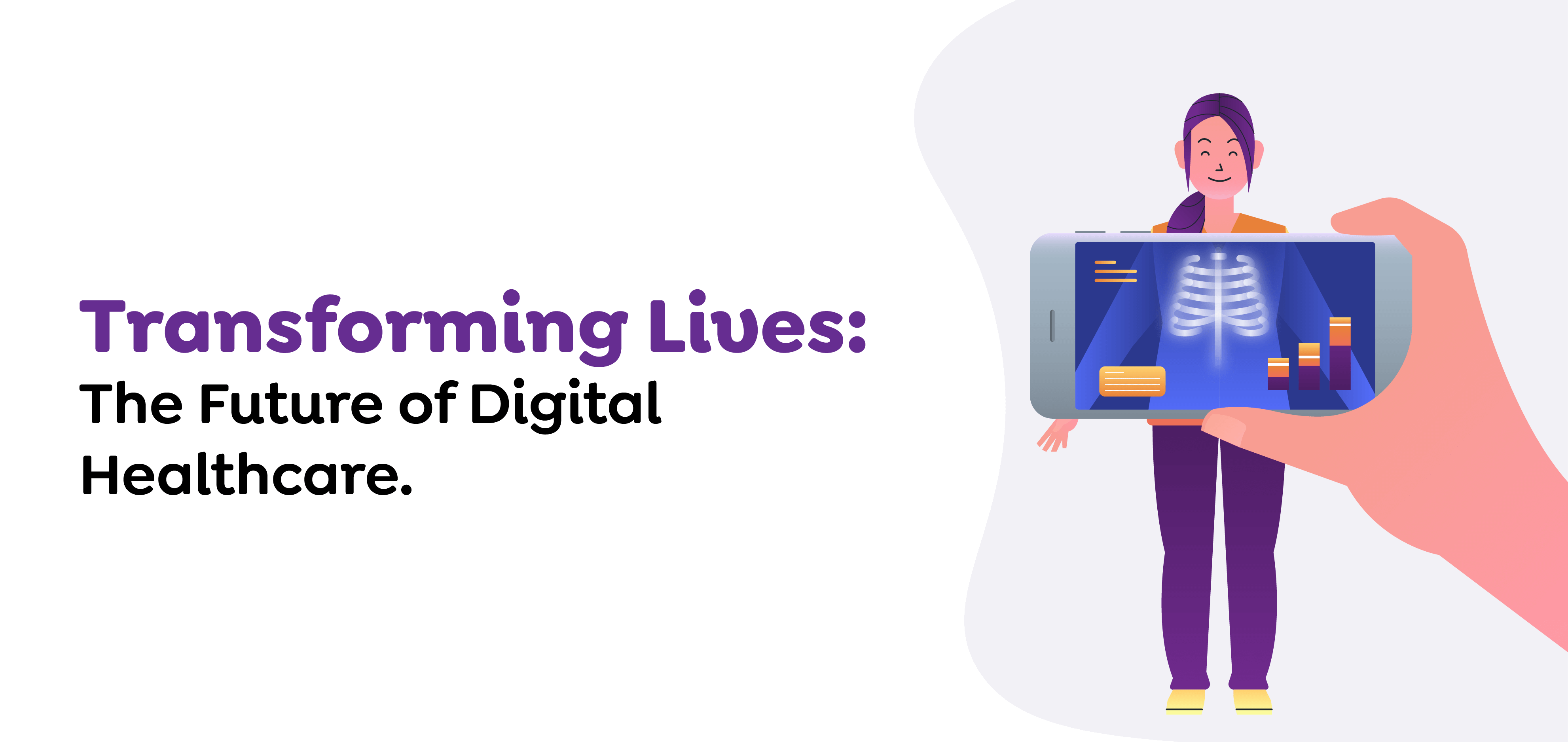
Empowering Health through Innovative App Solutions
Meeting the Growing Demand:
With an ever-expanding global population, the demand for accessible and efficient healthcare solutions has reached unprecedented levels. App development companies have a unique opportunity to meet this demand by creating healthcare apps that bridge gaps in accessibility, providing individuals with a means to manage their health effectively.
Tailored Solutions for Diverse Needs:
Healthcare app development allows companies to craft tailored solutions for many healthcare needs. Whether it’s developing telemedicine apps for remote consultations or disease-specific apps for chronic conditions, the ability to cater to diverse healthcare requirements positions a mobile app development company in USA as key players in addressing the unique challenges individuals and healthcare providers face.
Empowering Users with Personalized Health Management:
One of the primary advantages of healthcare app development is the empowerment of users to take control of their health. By integrating features that enable users to track daily activities, monitor vital signs, and set personalized fitness goals, app developers contribute to a culture of proactive healthcare management, fostering healthier lifestyles among users.
Enhancing Disease Management:
A healthcare app development company specializing in healthcare has the opportunity to design apps that significantly improve disease management. By creating apps tailored to specific conditions, such as diabetes or cardiovascular diseases, developers can provide tools for symptom tracking, medication adherence, and real-time communication with healthcare providers, ultimately leading to better patient outcomes.
Tackling Mental Health Challenges:
Mental health apps developed by a mobile app development company in USA offers a crucial avenue for addressing the growing mental health challenges individuals worldwide face. Features like mood tracking, meditation exercises, and virtual therapy sessions provide accessible and stigma-free support for those dealing with mental health issues.
Streamlining Healthcare Processes for Efficiency:
Investing in HIPAA compliant healthcare apps means contributing to streamlining various healthcare processes. Appointment scheduling, prescription refills, and administrative tasks can be significantly optimized through well-designed apps, reducing the burden on healthcare providers and patients and improving the overall efficiency of healthcare delivery.
Integration with Health Monitoring Devices:
App development companies can leverage the integration of HIPAA compliant healthcare apps with wearable health monitoring devices. This synergy allows users to access real-time health metrics, from heart rate to sleep patterns, providing a comprehensive health profile and contributing to early detection of potential health issues.
Addressing Public Health Concerns:
App development companies can play a pivotal role during public health crises by creating apps that address specific challenges. Contact tracing apps, for example, contribute to controlling the spread of infectious diseases and bolstering global health security.
Also Read – How to Develop a Healthcare App like myAster? Reveal Cost, Features, Business Opportunities, & Much More
Innovative Technological Foundations: Elevating Telemedicine App Development
Certainly! Here are different technologies and their noteworthy features that can be beneficial for a healthcare app, especially for a white-label telemedicine app, from the perspective of an app development company:
1. Video Conferencing Technology: Seamless Video Calls
Integration of robust video conferencing APIs for high-quality, uninterrupted virtual consultations.
2. Blockchain Technology: Enhanced Security
Implementing blockchain for secure and transparent patient data management ensures privacy and data integrity.
3. Cloud Computing: Scalability and Flexibility
Utilization of cloud computing in healthcare for scalable and flexible infrastructure, accommodating the growing user base and data storage needs.
4. Artificial Intelligence (AI): Intelligent Chatbots
Integrating AI-driven chatbots for initial symptom assessment, appointment scheduling, and basic healthcare queries.
5. Machine Learning (ML): Predictive Analytics
Application of ML algorithms for predictive analytics, aiding in early detection of potential health issues and personalized healthcare recommendations.
6. Internet of Things (IoT): Remote Patient Monitoring
Integration of IoT devices for real-time monitoring of vital signs and health metrics, enabling remote patient care.
7. Augmented Reality (AR) and Virtual Reality (VR): Enhanced Training Modules
Incorporation of AR/VR for immersive training modules, allowing healthcare professionals to enhance their skills and stay updated.
8. Mobile Health (mHealth): Wearable Integration
Compatibility with wearable devices for continuous health monitoring and seamless data synchronization with the app.
9. Biometric Authentication: Secure Access Control
Integration of biometric authentication, such as fingerprint or facial recognition, to ensure secure access to sensitive health information.
10. Data Analytics: In-Depth Insights
Advanced data analytics tools are utilised to derive insights from patient data, aiding in healthcare planning, resource allocation, and personalized treatment plans.
11. Push Notifications: Appointment Reminders
Implement push notifications for appointment reminders, medication alerts, and essential health updates.
12. Telecommunication APIs: Seamless Communication
Integration of telecom APIs for secure and efficient communication between healthcare providers and patients.
13. Cybersecurity Measures: Data Encryption
Implementation of robust cybersecurity measures, including end-to-end encryption, to protect sensitive patient data from unauthorized access.
14. Electronic Health Records (EHR) Systems: Streamlined Record-Keeping
Integration with EHR systems for streamlined and centralized health record-keeping, ensuring comprehensive and up-to-date patient information.
15. Cross-Platform Development: Wide Reach
Utilization of cross-platform development frameworks to ensure the app’s availability on multiple devices and operating systems, reaching a broader user base.
Leveraging these technologies and features can empower a healthcare app development company to create a comprehensive and innovative white-label telemedicine app that delivers value to healthcare providers and patients.
Diversifying Healthcare App Development:
1. Telemedicine App Development
Crafting platforms facilitating remote consultations and medical advice.
2. Fitness and Wellness App Development
Creating solutions that assist users in setting and achieving fitness goals and promoting a healthy lifestyle.
3. Disease-Specific App Development
Tailoring apps to manage specific health conditions like diabetes, cardiovascular diseases, and mental health.
4. Medication Management App Development
Designing apps to help users track medication schedules and receive dosage reminders.
5. Mental Health App Development
Creating tools for stress relief, mood tracking, and virtual therapy sessions.
6. Health Information App Development
Developing apps that provide reliable health information and resources.
7. Women’s Health App Development
Designing solutions that cater to women’s health needs, including menstrual cycle tracking and pregnancy monitoring.
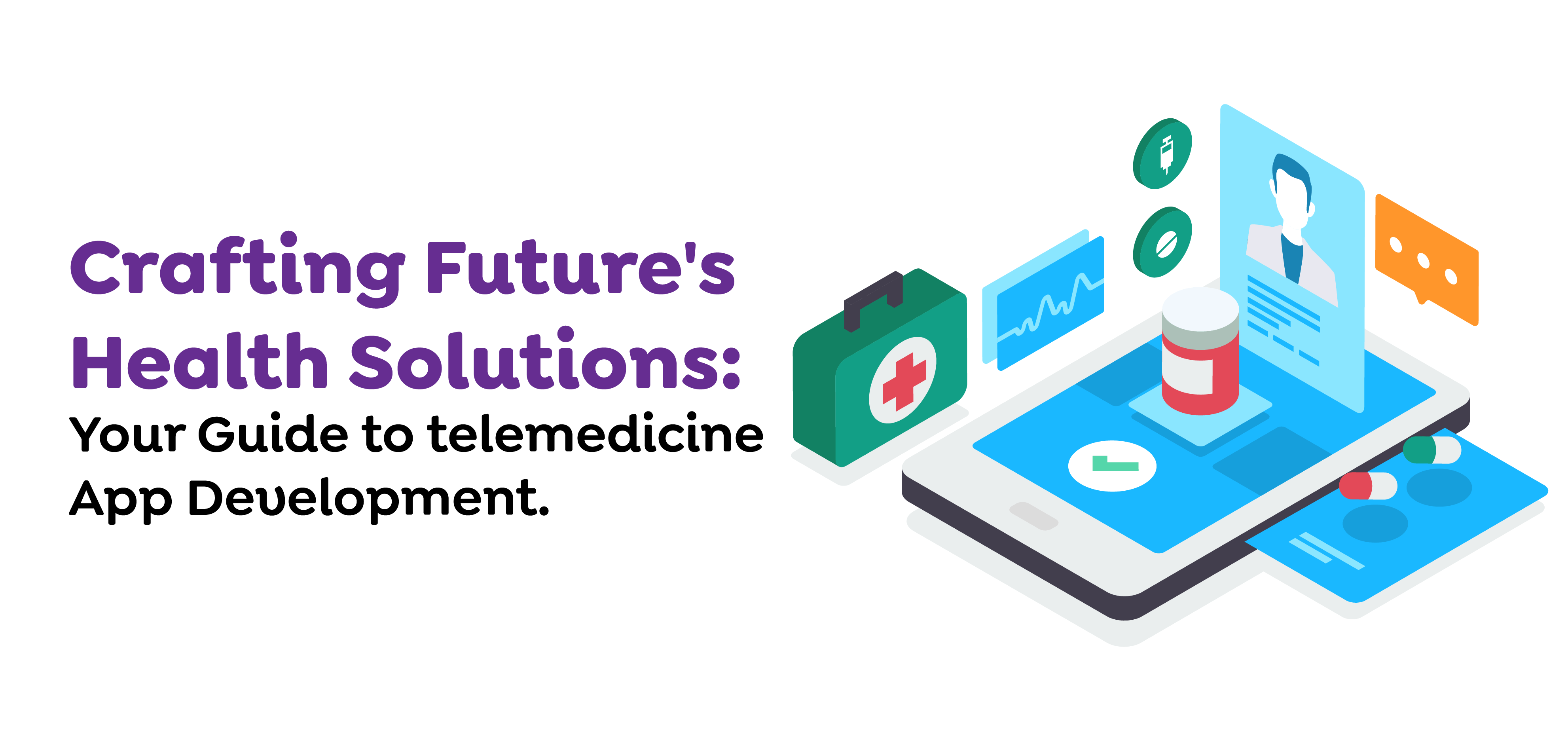
Features of Telemedicine Apps:
In the dynamic healthcare landscape, telemedicine apps are revolutionary tools poised to transform how individuals access medical care. Fueled by technological advancements, these apps bring healthcare to users’ fingertips, substantially enhancing human lives.
Virtual Consultations:
- Facilitate real-time, virtual consultations between patients and healthcare providers.
- Connect with medical professionals from home, eliminating the need for physical visits.
Accessibility:
- Break down geographical barriers, providing healthcare access to individuals in remote or underserved areas.
- Ensure that individuals with mobility issues or transportation challenges can quickly seek medical advice.
Convenience and Time-Saving:
- Enable users to schedule appointments conveniently, reducing the need for long clinic waiting times.
- Reduce travel time and associated hassles, making healthcare more accessible for busy individuals.
Prescription Services:
- Allow healthcare providers to send prescriptions to a user’s preferred pharmacy electronically.
- Streamline the process of obtaining necessary medications, enhancing overall convenience.
Follow-up Care:
- Support continuous care through virtual follow-up appointments, ensuring patients receive ongoing support and monitoring.
- Ideal for managing chronic conditions and post-treatment care.
Secure Health Data Management:
- Prioritize the security and privacy of health information, employing robust encryption and data protection measures.
Cost Considerations
1. Development Team Location:
The geographical location of the development team significantly influences costs. Choosing a team in a region with lower labor costs can be a cost-effective decision.
2. App Features and Complexity:
The number and complexity of features directly impact development costs. A streamlined app with essential features may be more cost-effective than a complex, feature-rich application.
3. Technology Stack:
The choice of technology stack, including programming languages, frameworks, and databases, can influence development costs. Opting for well-established and widely used technologies may be more cost-effective.
4. Customization Level:
The extent of customization required for the white-label telemedicine apps affect costs. Balancing customization with pre-built white-label solutions can be a cost-effective approach.
5. Regulatory Compliance:
Ensuring compliance with healthcare regulations adds an extra layer of complexity and cost. Understanding and planning for regulatory requirements from the outset can prevent costly revisions later in the development process.
6. User Interface (UI) and User Experience (UX) Design:
Investing in a user-friendly design is crucial, but the level of sophistication can impact costs. Striking a balance between a seamless user experience and cost-effective design is key.
7. Integration with Existing Systems:
If the telemedicine app needs to integrate with existing healthcare systems or databases, the complexity of integration can influence costs. Seamless integration may require additional development efforts.
8. Testing and Quality Assurance:
Thorough testing is essential in healthcare app development. Investing in quality assurance processes, including testing for security and compliance, can prevent costly issues post-launch.
9. Maintenance and Support:
Planning for ongoing maintenance and support is crucial for the longevity of the app. Having a well-defined maintenance plan can be more cost-effective than addressing issues reactively.
10. Scale and Future Expansion:
Anticipating future growth and scalability needs is vital. Developing a scalable architecture from the beginning may involve higher upfront costs but can be more cost-effective in the long run as the app expands.
Considering these factors and striking a balance between functionality, customization, and cost-effectiveness is key to developing a successful and sustainable healthcare or white-label telemedicine app.
Read more: How Much Does It Cost To Develop A Healthcare Mobile App?
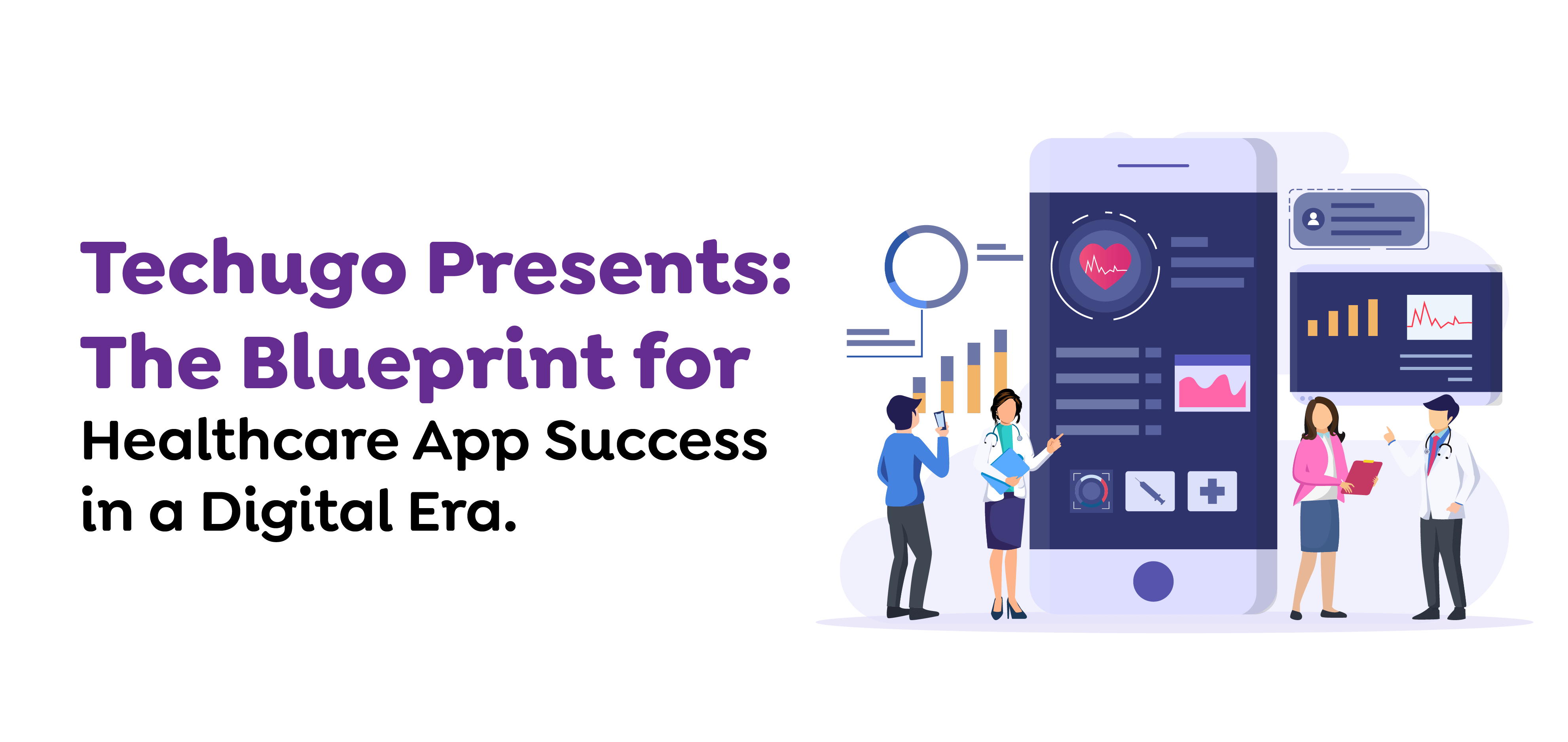
Techugo: Pioneering the Path to Healthcare App Excellence!
Investing in healthcare app development is not just a business decision; it’s an investment in the well-being and future of humanity. White-label telemedicine apps development company has the unique opportunity to pioneer transformative solutions that address the evolving challenges of the healthcare landscape. By channelling resources into crafting innovative and user-centric healthcare apps, our company contributes to a healthier, more connected future, positioning themselves at the forefront of the digital healthcare revolution.
Moreover,by getting in touch with a top mobile app development company like Techugo, you can position your healthcare app as a game-changer in the thriving online healing and medicine delivery landscape in the USA.
Get in touch.
Write Us
sales@techugo.comOr fill this form



